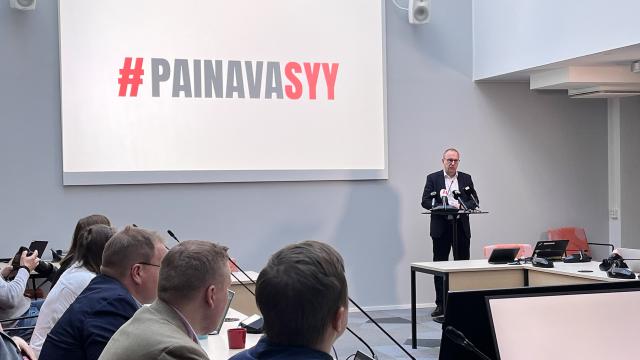Finnish union leaders warn of doubtful side of "German labour market model"
A report published in early August by the Federation of the Finnish Technology Industry indicates that Finland39s cost competitiveness has declined in comparison with its main competitors. In the debate surrounding this issue employer representatives have repeatedly referred to the strength of the German export industry, in particular, and hinted that Finland should follow Germany's example.
– Germany's road cannot be our road, say the Presidents of two influential trade unions, namely, the metalworkers' Riku Aalto and private sector salaried employees' Antti Rinne (trade union Pro). They came to this clear conclusion in late August when the two unions published their 30-page study on how Germany's labour market model has treated wage and salary earners since the middle of the 1990s. At a later date the study, written by Kari Kinnunen, will also be published in English.
Wage or salary should allow decent living
– Employers have totally ignored the employee perspective when referring to Germany's example, Aalto and Rinne claim critically. They stress strongly that it is essential for employees to be paid enough so as to allow them make a decent living. This is not the case in present day Germany. As a result of labour market and social security reforms there are now millions who may be classed as ‘the working poor’ in Germany.
In 2010 – not including the peculiar bottom layer, the so called "mini-jobbers" – almost two million employees earned less than EUR 5 per hour and eight million below EUR 8.50 per hour. The number of employees in part-time jobs, in temporary employment relations and those who belong to agency labour has increased from 6 million to 9 million. And in addition to all this, in 2010 over 7 million work in "mini-jobs" where the monthly pay does not exceed EUR 400!
Meanwhile, in conjunction with this rapid rise in atypical employment collective agreements have provided only low or at best very moderate pay rises. Since 2000 the real income of Germany's wage and salary earners has decreased on average by 7 per cent, the German economic research institute DIW summarizes.
No “race to the bottom” wanted in Finland
In real terms it can be said that Germany has acquired its strong cost competitiveness by means of applying or adopting the notorious “race to the bottom" approach. Aalto and Rinne characterize the means used in Germany as "doubtful".
This is interesting also in light of the current economic crisis in Europe and the euro crisis. Germany's strong competitiveness has been bad, for example, for EU's Mediterranean Member States, now struggling with more or less enormous economic difficulties. Their companies have been finding it difficult to defend their positions in competition with German companies. Thus, Germany's "race to the bottom" strategy has become an essentially negative and aggravating factor, which serves to worsen Europe's current crisis.
If Finland and other EU countries that are not currently suffering an economic crisis were to follow Germany's example, this would constitute a fatal blow to the welfare society model or the ideal of social Europe. The Finnish trade union movement categorically rejects any model that attempts to curtail living incomes or which seeks to undermine the very basis of the welfare state.
News
 The Central Organisation of Finnish Trade Unions
The Central Organisation of Finnish Trade Unions


